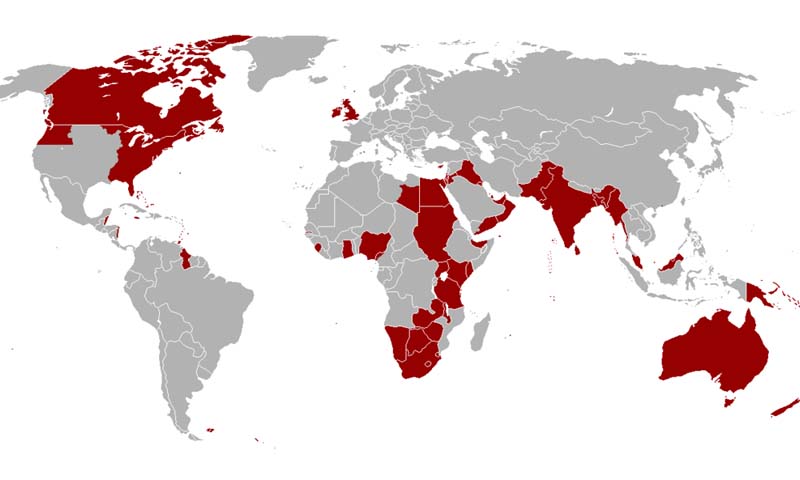
The British Empire
“The British Empire was acquired in a fit of absent-mindedness.”
~ Sir John Seeley (1834-95)
The enduring motivation behind the British Empire and those of our European competitors, was trade. Spreading Christianity was somewhere in the mix but the costly annexation of territory was not the goal. Rather, with the British Navy ruling the waves after the Battle of Trafalgar, it was the establishment of free trade ports along particular sea-routes that was of paramount importance.
However in India, Britain’s East India Company reluctantly took over the remnant Mogul administration to help solve local disputes. North America attracted settlers and Australia received convicts. Britain’s pioneering of industrial methods engendered a desire to spread the advantages of roads, railways and telecommunications as well as education. Thereby the Empire gradually evolved.
Additions to the Empire were piecemeal and it was the settlers themselves who set out to expand their boundaries, not the government, which always preferred colonies to be self-governing. In the 1880s Germany scrapped free trade and spurred the ‘scramble for Africa’, especially after the Suez Canal was opened. This coincided with the emergence of the big bankers and loans to cash-strapped governments, a factor which rapidly dissolved all European empires after WW2.
(Image: Ramirez72, Andersmusician, Vadac at Wikimedia Commons / CC BY-SA 2.5)
